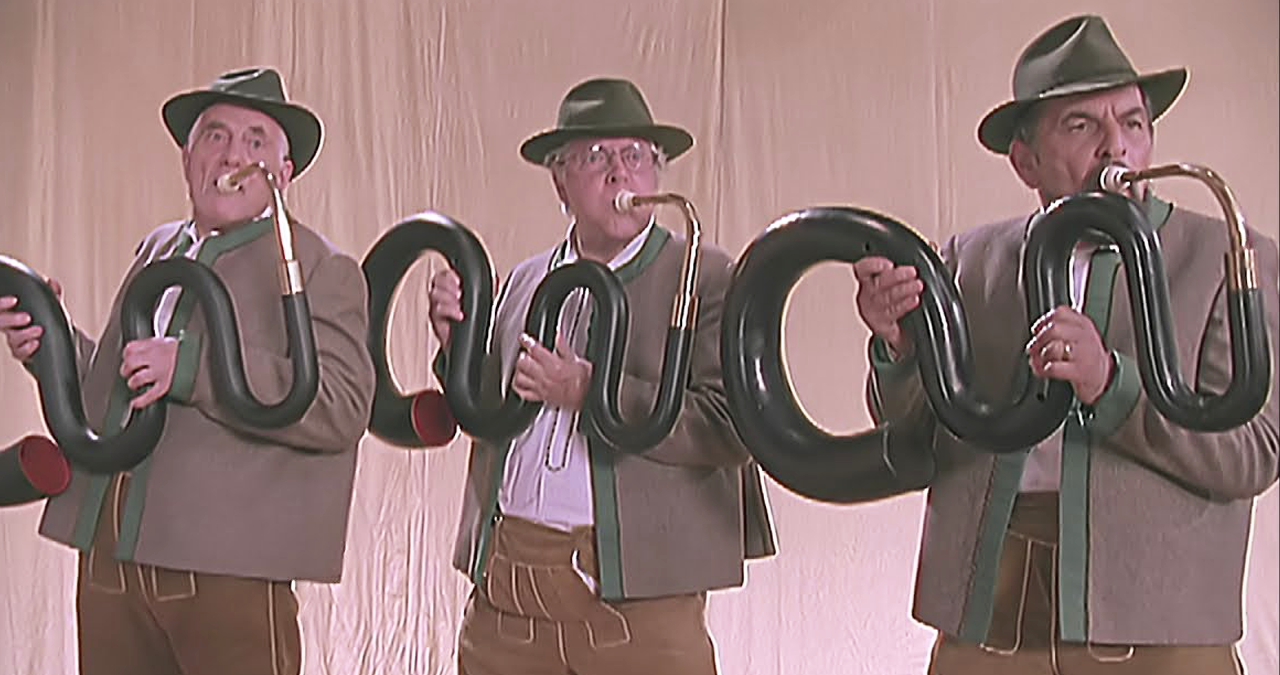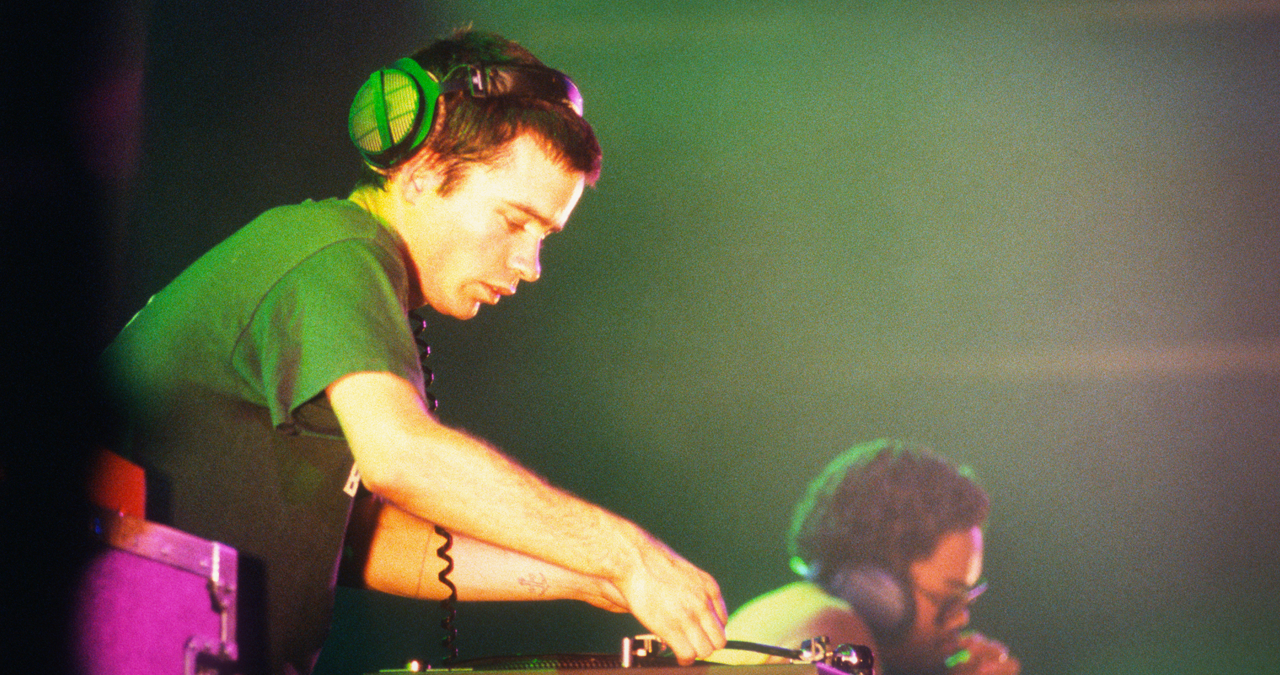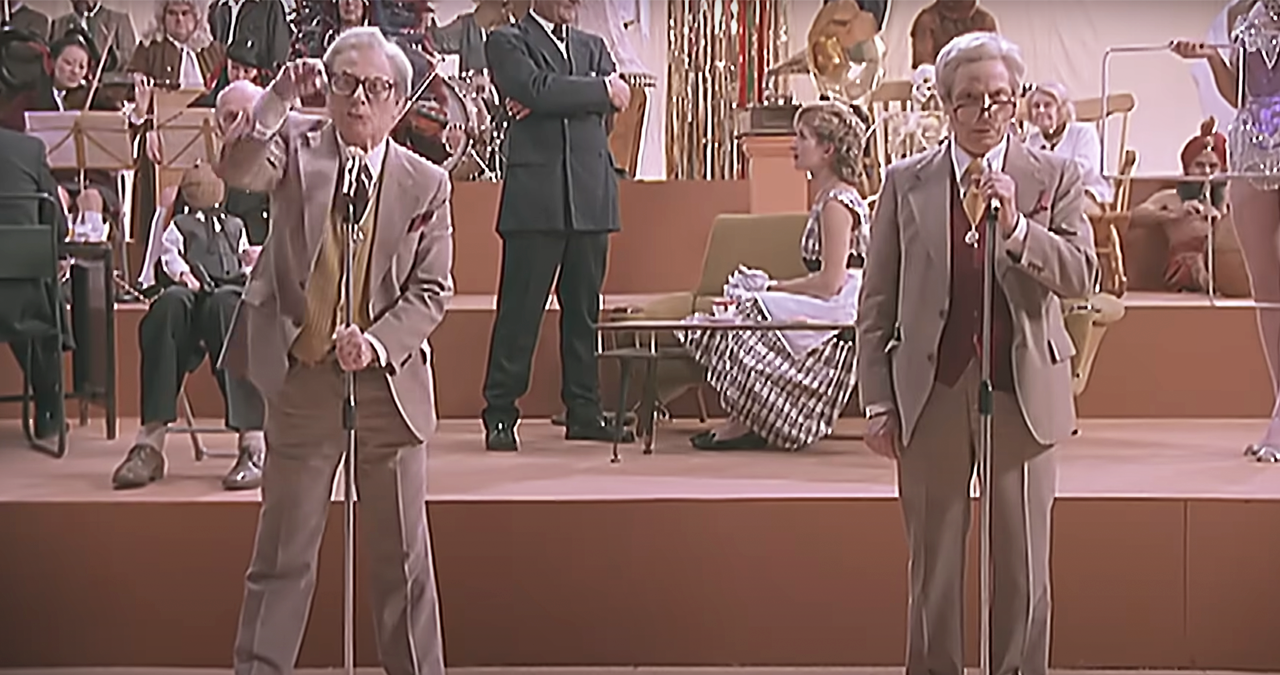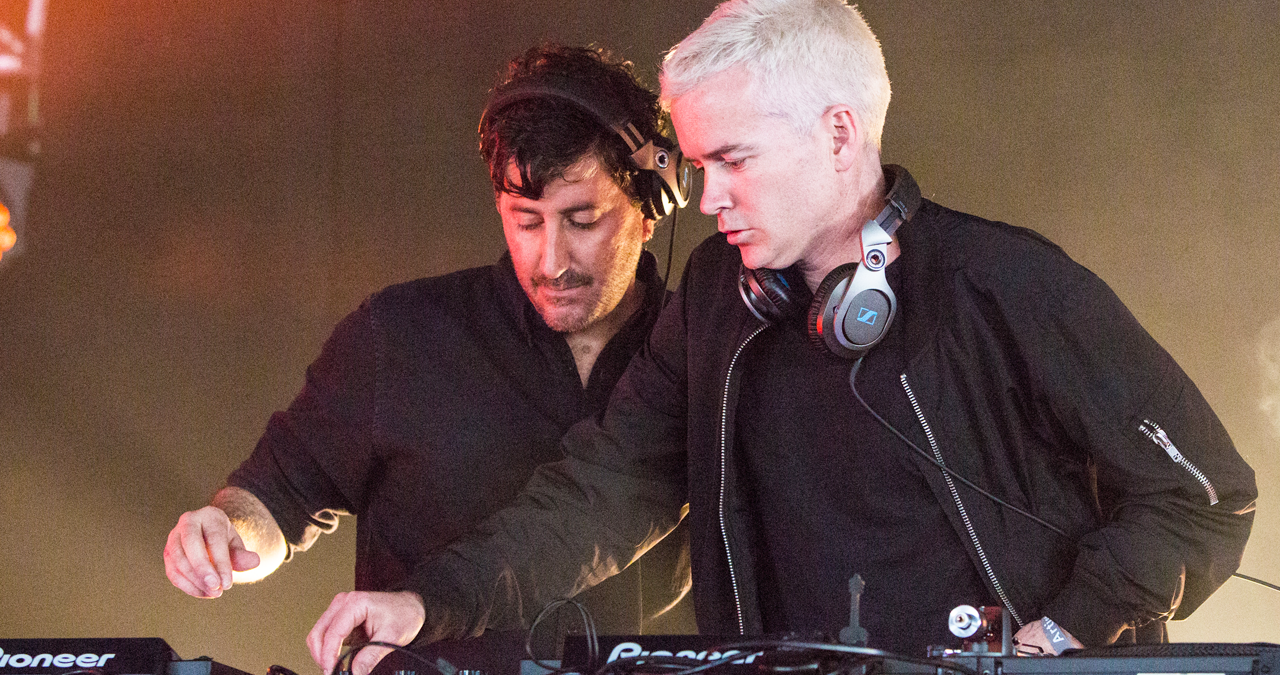“It’s impossible to make a record if you’re having to clear a horse noise”: How The Avalanches assembled their surreal monument of weird, Frontier Psychiatrist, from a huge range of samples
Tighten your buttocks and pour juice on your chin as we unpack The Avalanches’ sample-constructed maelstrom

Want all the hottest music and gear news, reviews, deals, features and more, direct to your inbox? Sign up here.
You are now subscribed
Your newsletter sign-up was successful
It’s the track for which they’re perhaps best known, but the delirious pillar of plunderphonics, Frontier Psychiatrist, remains still the oddest thing in The Avalanches' eclectic repertoire.
Released ahead of the Melbourne sampling-obsessives' debut album, (the magnificent Since I Left You), this quirky, yet oddly haunting track was a carousel of the weird. An aural trip into a deranged landscape, Frontier Psychiatrist sounded like a playful celebration of the joy of crate-digging, in fact, it was painstakingly assembled from elements that had been carefully hand-picked for their peculiarity.
Founded in Melbourne in the mid 1990s, first as a noise punk outfit, the Avalanches soon became wholly fixated on sampling as their raison d'être.
Powered mainly by the experimentalism of young film student Robbie Chater and the dependable abilities of multi-instrumentalist Tony Di Blasi, the version of the Avalanches who brought Since I Left You to life were originally a much larger crew.
A key creative component of this first incarnation, particularly in the assemblage of said samples, was erstwhile co-founder Darren Seltmann. Then there was skilled turntablist Dexter Fabay and keyboardist/songwriter Gordon McQuilten, both casting their respective talents into the creative melting pot.
Tinkering with samples since he was 15 years-old, Robbie had become fixated with his Akai S2000 and enthralled by the potential of re-imagining fragments of long-forgotten records, film soundtracks, dialogue and real-world atmospherics with the aim of birthing entirely new music.
“The sampler is my guitar, and it really affects how I listen to the world,” Chater told DJ Magazine.

Close friends since the teenage punk rock days, Seltmann recalled in a contemporary interview with Sound on Sound that he and his pal Robbie would make good use of the facilities available at Chater’s university to work on developing their shared passion.
“Robbie went to university as soon as he got out of high school and did a media arts degree that was based on film soundtracks and things like that. He ended up hijacking the soundtrack part because everybody wanted to make films and nobody cared about the soundtracks, so we were given free rein in the studio.”
Experimenting long into the night, the nocturnal ritual of building new ideas from shards of disparate elements became the norm for Chater and Seltmann.
Naturally, raiding the dustiest corners of record stores and market stalls in search of long-forgotten, esoteric building blocks soon followed. As the Avalanches grew into a versatile live troupe, their sonic expeditions became ever-more colourful, blending records, television and film audio with hand-constructed sounds.
Want all the hottest music and gear news, reviews, deals, features and more, direct to your inbox? Sign up here.
Eventually, after putting out a series of EPs, Robbie and Darren embarked on the natural summit of their endeavours; a full length album. The aim was to craft it entirely from thousands of individual samples.
For Robbie, who had been struggling with alcohol addiction since his mid-teens, immersing himself fully into the process of making Since I Left You became akin to a personal therapy.
“[I] ended up in intensive care for a number of weeks. I nearly didn’t make it, basically,” he told The Guardian. “Since I Left You came maybe two years after that, when I was sober and just glad to be alive. That’s a lot of the feeling and the joyousness behind that album, me at 23, making music and just happy to be alive, you know?”
Built from an estimated 3,500 individual samples, cherry-picked from Chater and the team's hefty record collection (and beyond), the sheer work that went into building the Avalanches’ debut was an extremely impressive feat.
Envisioned as an escapist travelogue (originally titled ‘Pablo’s Cruise’), the resulting musical journey was a veritable ode to escapism.
The album’s non-stop flow bristled with an infectious wide-eyed optimism. It hinted, both thematically and musically, at self-discovery through exposing yourself to new experiences, cultures and people.
Sampling was the perfect medium to tell this story.
“It's really a game of patience, Danny told Sound on Sound of the sampling process for the record. “In the beginning it was literally 'OK, I've got 10 sounds. Two are in tune.' Creating chord changes can take a week - to make the chord change that you need without plugging in an organ. There is a bizarre satisfaction to be got out of that, and maybe that's a more intense satisfaction than actually playing it yourself."
Roaming their self-fabricated world, seemingly unbound in time, the Avalanches expressed a sense of playful cheekiness in their sampling choices (yes, that’s clearly the rhythm track of Madonna’s Holiday making up the bedrock of Stay Another Season), but the end results were typically nothing short of glorious.
“We have a lot of love for those artists who have their own little universes,” Robbie told this writer in an interview for MusicTech. “I remember way before we even started working on Since I Left You, what’s what we wanted to do. To find our own little corner of the muscial universe, so that we weren’t competing with anyone.”
But, as the album’s brightly-hued odyssey nears its end, a hurricane begins to gather pace.
Heralded by the onrushing gallop of horse hooves. The listener is thrust into the fever-dreamscape of the hallucinatory Frontier Psychiatrist. It was this track that would wedge the Avalanches into the psyche of pop culture.
Prefiguring the post-modern, meme-saturated landscape that would arise in the looming new century, this ultimate flex of sample-craft was, also, quite the silliest thing on the record.
With most of the album already finished, the idea to add something a little quirkier to the journey manifested during the last six months of the process.
“Frontier Psychiatrist was a good example of something we didn’t plan and just happened from us just [messing] around,” Robbie told Pitchfork.
Robbie and Darren were still using their Akai S2000s alongside a Yamaha Promix 01 routed into early DAW Studio Vision from Opcode (though the record would later be mixed in Pro Tools).
“I’d had the music for a long, long time. That big Spaghetti Western kind of sample,” Robbie told Triple J. “I could never figure out what to do with it.”
That particular ‘Spaghetti Western’ orchestral/choral sample was in fact taken wholesale from The Enoch Light Singers’ My Way of Life (from 1968).
Its ominous, dramatic tone evoked the looming dread of a high-stakes gunfight in an old cowboy movie… as might be watched on television by a transfixed child on a Saturday afternoon.
Atop that ‘My Way of Life’ backing, came a multitude of voices clipped from eccentric comedy skits, children’s storybook LPs, sunny calypso music and a raft of animal sounds. These were propelled along via a frenetic beat (taken from Harvey Mandel's Wade in the Water.)
Chater and Seltmann had tunnelled further down the crate-hole than ever before to put it all together.
Though it’s certainly the most absurdist thing on Since I Left You, it’s also, thematically, perhaps the most clear-cut.
Frontier Psychiatrist hinted at a narrative concerning a boy, named Dexter, who, as revealed in the opening dialogue exchange between a schoolteacher and the boy's mother, has been expelled from the school, and diagnosed by the Baltimore Country School Board as ‘criminally insane’ due to an ongoing truancy problem.
This high-camp conversation was snipped from John Waters’ 1981 film Polyester (starring drag legend Divine as the aforementioned mother).
A (sort of) narrative established, the resulting sample choices slotted neatly together with this introduction. The frequently repeated (sometimes stuttered and effected) vocal motif 'That boy needs therapy’ and 'Lay down on the couch' continued this thread of suspected insanity.
Many of these voice clips were extracted from a comedy sketch by Canadian comedy duo Wayne and Shuster (including, ‘You’re a nut’ and ‘You’re crazy in the coconut’).
The resulting sonic panorama further mirrors a child’s overloaded mind-state.
The female voice who asks a (different) child if she could think of ‘anything that talks other than a person’ (the answer: ‘A bird?’) and the resulting, smile-inducing parrot imitation originated from children’s storybook record ‘Aunt Theresa, Please Tell Me a Story' from 1966.
More clips hoovered from this record include ‘Did I ever tell you the story about…’ and ‘Pour juice on your chin!”
The YouTube video below features the audio from the original record and timestamps to where the Avalanches' pulled the samples in its description.
Another key component, the outro’s delightfully lilting guitar riff, came from a George Barnes recording of the song Anna (El Negro Zumbón), as can be heard below.
Further elements stitched into the fabric of Frontier Psychiatrist include an interview with Laurie Anderson, quotes from standup comedian Flip Wilson and an underlying melody from Percy Faith & His Orchestra.
Though these constituent parts were mapped out by Robbie and Darren, much of the performative turntable manipulation was handled by DJ Dexter Fabay.
“It was incredible to see it all come together and just to see the way Robbie works,” Dexter told The Vine, “The way he put together samples and created music was something that I’d never heard before.”
Even in the context of this most exploratory of records, Frontier Psychiatrist is a standout. Its tone dispenses with the surrounding wanderlust and ploughs headlong into uncharted waters.
Although Since I Left You was a work of obvious brilliance, the Avalanches very much did not expect to have to go through the time-consuming rigamarole of clearing all the samples used.
Conceived as largely a personal project, for them and their fans, the group hadn't been all that meticulous in how they catalogued exactly what they had used.
Soon, interest from international record labels beyond their current Australian label Modular, namely XL in London, became drawn to this heavily discussed album.
“The record was finished and mixed, and then I guess publicists around in the UK started to get excited, and all of a sudden it's like, ‘Okay, we've got to make a list of everything that's on the record and where we got it,’ Chater told Pitchfork. “And we don't really know - most of it's on unlabeled floppy disks. So we had to go through and find where everything was from.”
The process was understandably long-winded with Robbie, Darren and co not only having to locate the source of their sounds, but also who held the rights. That wasn’t just for the music of course, rights-clearance extended to the dialogue and even the animal noises used.
As Tony remarked to Rolling Stone, “It’s impossible to make a record if you’re having to clear a horse noise.”
Thusly, the release of the album (and single) was delayed until the following year (2001) in the UK and the US, with a few minor alterations to account for samples still uncleared.
If you ask most people though, it’s really Frontier Psychiatrist’s suitably unhinged video that is perhaps an equal part of the reason as to why the track left such a sizeable footprint. For some, it was their first exposure to the Avalanches' boundless creative universe.
Directed by Tom Kuntz and Mike Maguires, actors and performers brought the track’s sampled dialogue and music to life.
Conceived by Chater, his concept was to have all these disparate elements coming together within a retro-looking TV variety show soundstage.
It was an instant hit, and served as a delinquent, visual tribute to the madcap art of sampling. It’s perhaps partly why the single made it to number 18 in the UK chart.
“So funny to reflect that such a strange song became a top 20 single,” Chater said in a Facebook post.

With an enormous chasm of time until the Avalanches delivered their luminous follow-up, Wildflower, in 2016, Since I Left You went on to attain cherished status, with Frontier Psychiatrist becoming one of the most well-known sample-assembled tracks of all time.
The Avalanches, now a duo of just Robbie and Tony (Darren left in 2006), released their third LP, space-gazing masterpiece We Will Always Love You, in 2020.
Though that latter album made an early play for the decade’s best record just as we began to emerge from COVID restrictions, it’s still the surreal madhouse of Frontier Psychiatrist that bursts into the heads of most when they think of the Avalanches.
As Tony Di Blasi aptly said to Triple J, on the group's enduring status as the godfathers of the plunderphonics genre; “It’s like The Avalanches is all these voices throughout time and we’re just a conduit for it.”


I'm Andy, the Music-Making Ed here at MusicRadar. My work explores both the inner-workings of how music is made, and frequently digs into the history and development of popular music.
Previously the editor of Computer Music, my career has included editing MusicTech magazine and website and writing about music-making and listening for titles such as NME, Classic Pop, Audio Media International, Guitar.com and Uncut.
When I'm not writing about music, I'm making it. I release tracks under the name ALP.
You must confirm your public display name before commenting
Please logout and then login again, you will then be prompted to enter your display name.


![Aunt Theresa, Please Tell Me a Story (1966) [Full Album] - YouTube](https://img.youtube.com/vi/ZvoAtLXovao/maxresdefault.jpg)